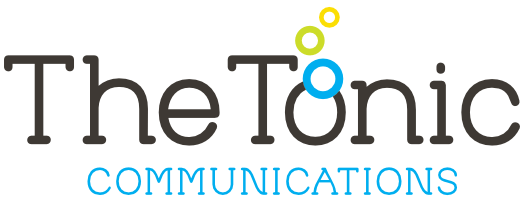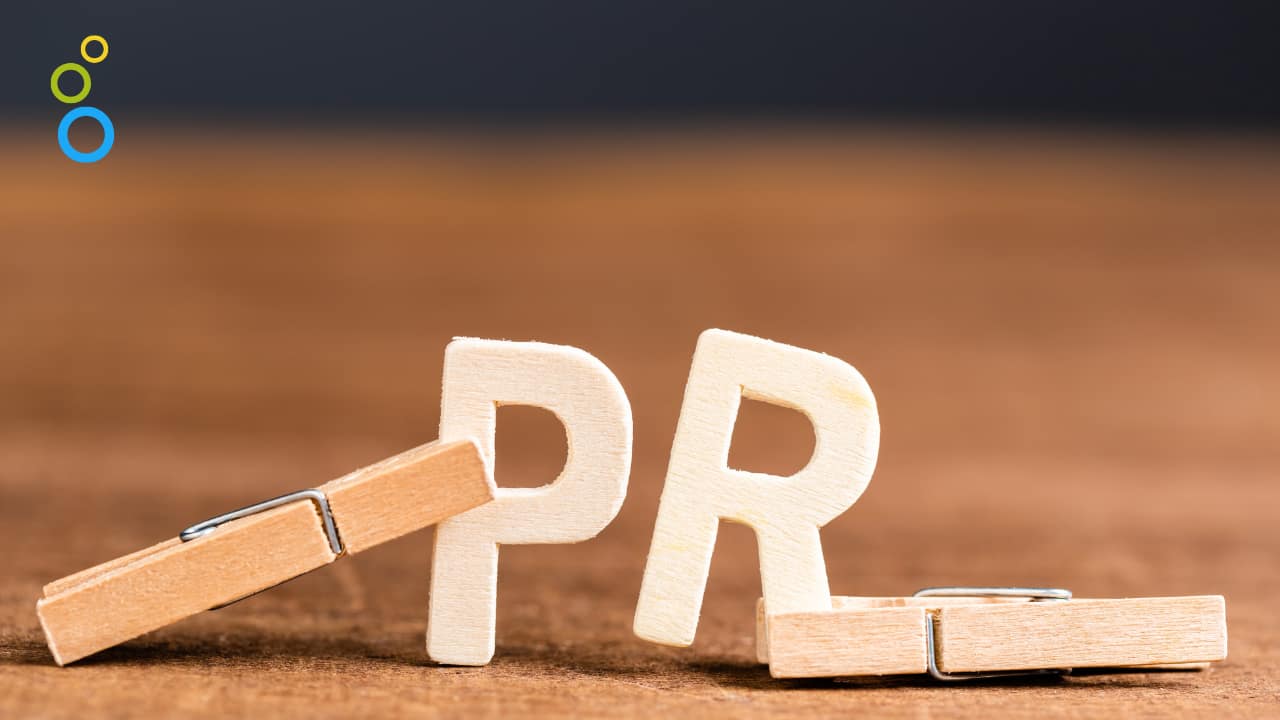Remember when you could predict exactly where your brand would appear in Google search results? Those days are officially over.
We’re living through the biggest shift in search behaviour since Google launched in 1998. AI-powered search is rewriting the rules of visibility, and frankly, most marketing teams are still playing by the old playbook.
Here’s the thing that should wake you up at night: Google processed more than five trillion searches in 2024, and increasingly, those searches are being answered by AI before users even click on a website.
If your brand isn’t showing up in these AI-generated responses, you’re essentially invisible to a growing portion of your audience.
But here’s what everyone’s missing – while paid ads are being filtered out and website traffic is ever harder to capture, earned media is becoming the golden ticket to AI search visibility.
In this guide, we’ll explain why this matters so much, and more importantly, what you can do about it.
The search landscape just flipped upside down
Let’s start with some numbers that should grab your attention.
- Zero click searches have already reached 60% across the US and Europe, according to Google.
- 89% of B2B buyers use AI tools for research before making a buying decision.
- More than 56% of marketers are already implementing AI SEO tools to improve search efficiency.
However, many are trying to optimise their websites when the real game-changing activity is happening somewhere else entirely.
When someone searches for “best treatment for chronic back pain” or “how reliable are at-home diabetes tests,” they’re no longer scrolling through ten blue links.
Instead, they’re getting AI-generated summaries that pull information from multiple (reliable) sources and present it as a cohesive answer.
The question isn’t whether this affects your brand, it’s how quickly you’re going to adapt to it.
Why earned media is the new SEO
Think about how AI search actually works.
When ChatGPT, Google’s AI overviews, or any other AI search tool generates an answer, it’s not just pulling from one website. It’s synthesising information from multiple credible sources to create what feels like a comprehensive, trustworthy response.
And here’s the crucial part: credible third-party coverage carries significantly more weight in these AI algorithms than your own website content ever could. In fact, is it estimated that 89% of sources cited by AI in its search results are from earned media.
When a respected health journalist writes about your breakthrough treatment, when a medical professional mentions your diagnostic tool in an industry publication, or when a patient advocacy group highlights your support program – that’s the content AI search tools are most likely to reference and cite.
Your website might tell your target audiences you’re innovative. But when a journalist at Digital Health magazine calls you “a revolutionary diagnostic company ,” that’s the kind of third-party validation that AI search algorithms trust and amplify.
The trust factor: why this matters more in healthcare
Three in four comms professionals feel confident in their organisation’s ability to take advantage of AI, but confidence and competence aren’t the same thing.
In healthcare, the stakes of getting this wrong are particularly high.
When someone searches for health information, they’re not just looking for any answer – they’re looking for trustworthy answers and reputable suppliers.
AI search tools are getting increasingly sophisticated at identifying and prioritising content that demonstrates expertise, authority, and trustworthiness. In other words, they’re looking for exactly what earned media provides.
Consider this scenario: A patient searches “are continuous glucose monitors accurate?” An AI search tool might collate information from:
- A winning award entry in the Health Services Journal
- An online news story in Med Tech Insights
- Coverage from the BBC News health section
- Patient testimonials from Diabetes UK
Your company website may not make that list, but your earned media coverage absolutely could.
The four pillars of AI search-ready earned media
So how do you position your brand to win in this new era?
It’s not about gaming the system, it’s about creating genuinely valuable earned media that AI search tools naturally want to reference.
1. Expert commentary that actually adds value
Gone are the days when a generic quote about “being excited about industry developments” would cut it. AI search tools are looking for genuine expertise and fresh insights.
Instead of reactive comments, consider leading conversations. When new research emerges about treatment outcomes, be the voice providing context.
When regulations change, explain what it really means for consumers, patients or the sector at large. When industry trends shift, offer the perspective that only someone deep in the field can provide.
The marketers who win here will be the ones whose spokespeople become go-to sources for journalists covering their sector. And this is crucial . Recent examples of media being hoodwinked into using AI-generated experts that don’t exist in the real world is a worrying trend.
It means that credibility is more important than ever, alongside authorship of content across a range of channels.
2. Research and data that becomes reference material
AI search thrives on authoritative, data-backed content.
That original research gathering dust in your Google Drive folder? It could be your ticket to AI search prominence.
Consider commissioning studies, conducting consumer, end user or patient surveys, or analysing industry trends in ways that create genuinely newsworthy findings.
When AI search tools look for credible statistics and research findings, you want them to find studies with your company’s name attached.
3. Thought leadership that shapes industry conversations
The most AI search-friendly content isn’t just informative, it’s influential.
When your CEO writes a piece for the Clinical Services Journal about the future of emerging healthcare technologies, or when your clinical director contributes to a Health Tech World discussion about diagnostic accuracy, you’re creating content that AI search tools recognise as authoritative.
This isn’t about self-promotion disguised as expertise. It’s about genuinely contributing to industry knowledge in ways that naturally showcase your brand’s credibility and innovation.
4. Case studies with real impact
Here’s something many brands miss: AI search tools are increasingly good at identifying and surfacing human stories that illustrate broader points.
Patient success stories, consumer case studies, and real-world outcomes aren’t just feel-good content – they’re exactly the kind of evidence-based narrative that AI search values.
The key is ensuring these stories get picked up by credible publications and platforms, not just shared on your own channels.
The content gap brands don’t see coming
72% of organisations have adopted AI in some form, but most are using it for operational efficiency, not strategic communications advantage.
This creates a massive opportunity for brands willing to think differently about earned media.
While your competitors are focused on optimising website content and buying more Google ads, you could be building the kind of third-party credibility that AI search tools actually prioritise.
Many marketing teams are still thinking about PR as traditional media relations when they should be thinking about it as AI search positioning.
The measurement challenge (and how to solve it)
Here’s where things get tricky.
Traditional earned media measurement – reach, impressions – doesn’t capture AI search impact. You can’t measure AI search visibility the same way you measure a newspaper mention, even with the most sophisticated monitoring tools.
Instead, you need to track:
- Share of voice in AI search results for your sector and for your range of products/services
- Citation frequency in AI-generated summaries
- Topic authority across relevant discussions
- Reference quality – are you being mentioned alongside the most credible sources?
This requires new tools and new thinking about what PR success looks like.
But the brands that figure this out first will have an enormous advantage over those still counting column inches.
The AI search opportunity for healthcare brands
The transformation happening in search isn’t a threat to earned media, it’s the biggest opportunity earned media has ever had.
While paid advertising becomes easier to filter out and website traffic becomes harder to capture, third-party credibility becomes the currency that matters most.
For healthcare brands specifically, this shift plays to your strengths.
Your sector already values evidence, credibility, and expert validation. AI search tools are simply amplifying these same qualities.
The brands that will dominate AI search results aren’t necessarily the ones with the biggest marketing budgets or the most sophisticated SEO strategies.
They’re the ones building genuine authority and thought leadership that third-party sources naturally want to reference and cite.
Getting started: your AI search earned media action plan
If you’re reading this thinking “this makes sense, but where do I start,” here’s your roadmap:
Immediate actions (next 30 days):
- Audit your current earned media for AI search potential – what coverage do you have that demonstrates real expertise?
- Identify the three key topics where you want to own the conversation in your sector
- Start tracking how often your brand appears in AI search results for those topics (talk to us for access to tools that can support this)
Short-term strategy (next 90 days):
- Develop thought leadership content that positions your experts as go-to sources
- Build relationships with the journalists and publications that AI search tools trust most
- Create research or insights that become reference material for your industry
Long-term positioning (next 12 months):
- Establish your brand as the definitive voice on specific healthcare topics
- Build a sustainable pipeline of expert commentary and thought leadership – that’s where The Tonic Communications comes in.
- Develop measurement frameworks that capture AI search impact alongside traditional earned media metrics
Partner with a reliable healthcare PR agency
Posted on
The AI search revolution isn’t coming, it’s already here.
The global AI market reached $638.23 billion in 2024 and search behaviour is changing at breakneck speed.
Healthcare brands that continue to treat earned media as a “nice to have” rather than “essential for visibility” will find themselves increasingly overlooked in the search landscape that matters most to their customers.
The opportunity right now is enormous, but it won’t stay that way forever.
As more brands catch on to the AI search game, the competition for authoritative third-party coverage will intensify.
The question isn’t whether you should be thinking about AI search and earned media integration. It is whether you’re going to lead this transformation or scramble to catch up when it’s already too late.


